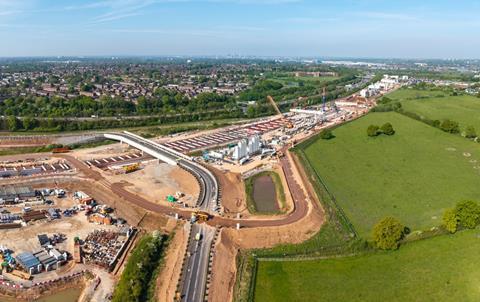Too many schemes end up in ‘valley of death’ between policy and delivery, parliamentary group warns
Parliamentarians are warning that “systemic failures” in major infrastructure project delivery could derail the government’s infrastructure ambitions.
In a new report launched by the All-Party Parliamentary Group on Project Delivery (APPGPD) today, parliamentarians have called for radical action to prevent infrastructure projects being stalled by competing interests.
It said infrastructure projects are often viewed with scepticism due to delays, overspending and short-term decision-making.

The inquiry found that too many projects fall into the so-called “valley of death” between policy and delivery, where ambition and investment are lost to bureaucracy, political churn and a lack of skills.
The report found that the current approach is not setting up infrastructure projects to be delivered on time, within budget or providing maximum value to communities or the country.
>> See also: Infrastructure that puts people first is the key to revitalising urban spaces
>> See also: Starmer promises to sign off 150 major infrastructure projects by end of this Parliament
Chair of the APPG for Project Delivery, Henry Tufnell MP, said: “Too often, short-termism, a lack of project skills and an oversimplification of complex challenges lead to overspends, delays, and public disappointment.
“The country is overflowing with solutions and ideas, but unless we put a protective ring around our project plans and support them with a culture that develops and sustains the skills we need, our ambitions will be derailed.”
He added: “Ballooning budgets and growing timelines are a symptom of an approach to infrastructure delivery which is not working. With billions of pounds, both from the private sector and the taxpayer, to be invested in infrastructure over the next 10 years, the Government needs to get serious about urgently fixing the foundations of our shaky delivery system.”
The report’s recommendations
The Government should use the 10-year infrastructure plan and NISTA, backed by long-term investment in projects, to embed delivery discipline as a permanent feature of government to end the so-called “valley of death” problem that exists between policy and delivery. This would require that targets are set early, resources and accountability are clarified, and major projects are protected from short-term politics and delivered consistently across Parliaments
The Government should expand training and mandate that all major projects secure independent delivery assurance before announcement, involve project specialists at the policymaking phase and ensure project delivery skills and expertise are built in from inception. This should be accompanied by departmental benchmarks and clear targets for the proportion of officials who are delivery-focused professionals
Project management training should be mandatory for senior civil servants and anyone managing a government project over £10 million. An accountable chief project officer should be incorporated into government departments to ensure all areas of government understand how complex, long-term projects are delivered
The government should consider establishing a National Infrastructure Delivery Skills Roadmap to lock in a consistent talent pipeline aligned with long-term national infrastructure priorities. While actions such as the ringfencing of funding for support training and apprenticeships in project management should be considered through routes such as the growth and skills levy
When considering Private Public Partnerships, the government must ensure the public sector has the engineering, legal, financial and negotiation expertise needed to match the private sector to clarify risks, set clear project specifications, and drive value for the taxpayer
A major shift is needed in procurement to ensure early supplier involvement, the inclusion of project professionals throughout the process and lessons learned from other countries
Empower NISTA to oversee national infrastructure projects from policy to completion, ensuring consistency, accountability and effective delivery across government
The government should lead in communicating the benefits and public value of national infrastructure projects, requiring major projects to set clear public value statements
















No comments yet